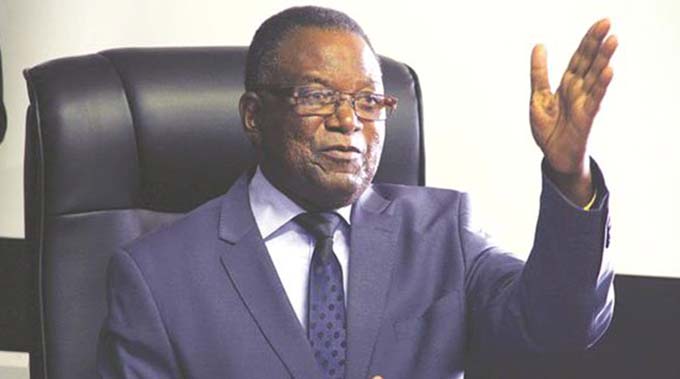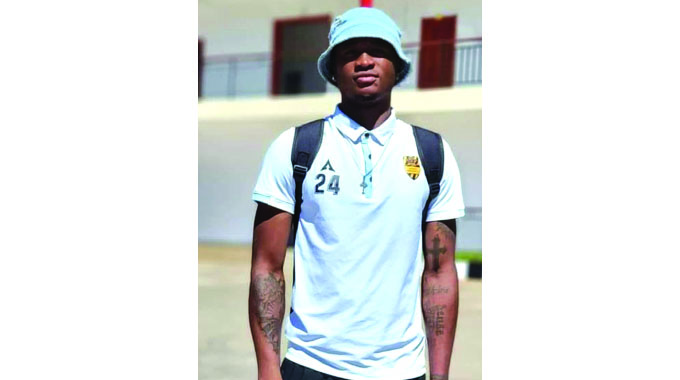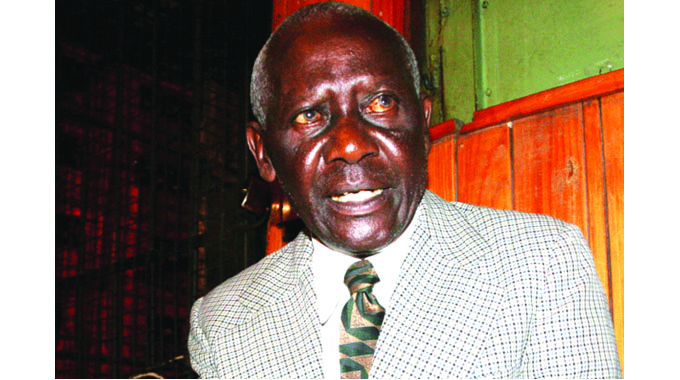TRAPPED IN THE PAST AND HAUNTED BY THE FUTURE

Sharuko On Saturday
FOR some, this past Wednesday marked the day the music died 48 years ago, when the life of a rock and roll legend came to an abrupt end in London. Jimi Hendrix was only 27 when he died on September 18, 1970, and had only been part of the global mainstream music for just four years.
I was only eight months, back then, a helpless toddler under my loving mum’s care, but such was his enduring legacy, I would grow into adulthood under the spell cast by his powerful music.
There are some who argue that, just as much as Alick Macheso is the greatest bass guitarist to come out of this country, Jimi was the finest guitarist of all-time.
They celebrate and remember him as the man who shaped a genre and defined a generation.
Music and football have always shared a special bond.
From the Liverpool fans belting out “You’ll Never Walk Alone,” and transforming Anfield into a theatre of emotions, to Shakira providing a soundtrack to the 2010 World Cup with her “Waka-Waka,” chart-topper – music has always been a big part of football.
The national anthems we sing with raging pride every time our Warriors are set for battle are all part of this enduring and beautiful romance between football and music.
And when the opponent is defeated at the National Sports Stadium, when the inevitability of our success gets scripted all over our faces, we erupt into the “Yave Nyama Yekugocha” signature tune to toast our triumph.
Reinhard Fabisch appeared to fully understand the influence of music coming from the stands at the giant stadium in transforming his Warriors into this Indomitable Dream Team.
And he would, like a choirmaster, summon us into action to sing for our boys at crucial stages of some epic battles.
Then, in the very last minute, a ball would be swung into the opponents’ box, Agent Sawu would time his jump to perfection, the connection would be sweet and the ball would roll home for the only goal that beat the Indomitable Lions of Cameroon.
Or Vitalis Takawira would find inspiration from the music to score a hat-trick against the same Indomitable Lions, in a four-goal destruction of these West African giants.
Even the Pharaohs would fall in that graveyard of visiting teams we call our fortress.
“For well over half-a-century, football has had an unmistakable connection with music,’’ an official FIFA report says.
“From teams marching onto home grounds accompanied by theme songs, to World Cup anthems and pop culture references, the music industry has strong ties to the world game.’’
I don’t know if Jimi Hendrix was a football fan, it’s very unlikely because he grew up in an America fascinated by the other type of football, where they have running backs and quarterbacks, and where the ball is oval-shaped and not round.
But I know his music inspired a generation in this game and there are many who feel his death, 48 years ago, also marked the day and year the music died.
Others will argue, and for good reason too, it was also the year football, as they knew it, died with Pele and his super Brazilian team of the 1970 World Cup providing a fitting end to the days when this game was a theatre for magicians.
Of course, some fine artistes have emerged since then – from Maradona to Messi and from Ronaldo to Ronaldo, but in terms of a collection of vintage superstars, playing in one team and at the peak of their athletic powers, the Brazil team of 1970 was the end of an era.
THE TWO GIANTS, MUSIC AND THE LOVE AFFAIRS
For half-a-century, between 1963 and 2013, Dynamos represented the phenomenon that rose to dominate domestic football with a streak of both brutality and brilliance.
They were the dominant bull in the kraal, the epitome of success and the club that blazed the trail in a relentless pursuit of greatness.
George Shaya made them great in the ’70s, Moses Chunga made them greater in the ’80s and Sunday Chidzambwa made them the greatest in the ’90s, where one fine afternoon in Abidjan, all that stood between them and becoming champions of Africa was, at least, a goal-scoring draw.
Their humble working-class roots, as a team created by some Mbare residents which represented the interests of ordinary, but hard working people in the black neighbourhoods, always provided an attraction to a new wave of both sympathisers and supporters.
And their enduring poverty, rather than being a distraction, was apparently an attraction.
Millions of boys and girls and men and women found it irresistible to identify with them and, in the image of these Glamour Boys, they all saw a reflection of themselves.
Their success on the pitch always provided a feel-good story which many would relate to, and which ensured there was always a new crop of followers ready to identify themselves with this team.
The very people who saw these Glamour Boys as “their” team, something that belonged to them by virtue of patronage, an institution they could proudly call their own by virtue of association, which belonged to no one in particular, but everyone in general.
The people’s team, the community’s team, their DeMbare, their Glamour Boys, something they could call their own in a very tough world where owning a house, or a car was beyond the means of many.
When days were dark and life was tough, all they needed to cheer their deflated spirits was just a trip to Rufaro, or a date with their transmitter radio to listen to a commentary of the events unfolding there, and – more often than not – their Glamour Boys would deliver.
And that would provide a refreshing break from the bondage and troubles that would have stalked them all week and a reason to look forward to another week, no matter how tough it was, with optimism.
Zexie Manatsa would sing for them: “Moses wagohwesa here, Moses wagohwesa here, Ntawatawa wabata here, Ntawatawa wabata here,” and in that fleeting boulevard of happiness, all their challenges were forgotten.
And they also composed songs which also spoke about ownership, about entitlement to this football institution.
“DeMbare itimu yedu, zora butter usekerere, kana ndafa uchandisiya ndoenda ndega, pahukama.”
Somewhere in the City of Kings, Lovemore Majaivana would also provide the soundtrack to an enduring love affair between a proud people and a football club they believed was a big part of their DNA.
A big part of the priceless fortune which their forefathers had left for them to inherit, never to be sold, always to be taken care of in a love affair that should last a lifetime.
A romance that started way back in 1926 with a touch of royalty, when King Lobengula’s grandsons Albert and Rhodes, returned home from Cape Town to lay the foundation of this football club.
They called it Lions FC, but it was Highlanders, the identity it assumed 10 years later, which stood the test of time and became the name which this proud institution would forever be associated with.
The power that attracted millions into the Bosso family was the club’s identity, as an establishment for the people, which belonged to the people, and whose fate lay in the hands of the people. There was a sense of ownership to it all, Bosso belongs to its people, it belonged to my late uncle Rabson Maunda, who spent all his life in Bulawayo.
And it belongs to my living uncle, Cosmas “Tsano” Zulu, who has dedicated a large part of his life serving this proud football institution as a loyal servant.
The members define policy on behalf of the people, the executive implement the policy on behalf of the people and the players play for the people. There is a sense of fulfilment, which not even a billion dollars can buy, which comes with supporting Bosso, which comes with belonging to this establishment.
And which comes with passing the inheritance to the next generation of fans – usually your sons and daughters.
You teach your boys from a young age that it’s part of who they are, as a people, to belong to Bosso, that the club belongs to them and, even if they might not derive any material or financial dividend from this association, it is something that is priceless.
And Lovemore Majaivana would provide the soundtrack with his classic song “Tshilamoya,” which showers praises to the heroes who have made Bosso what it is today.
Ndumiso Gumede, Peter Nkomo, Netsai Moyo, Madinda Ndlovu, Tito Paketh, Titus Majola, Dumisani Ngulube, Richard Ndlovu, Nhamo Shambira, Fanwell Ncube, Douglas Mloyi, Alexander Maseko, Morgan Phiri, Tommy Masuku, Lawrence Phiri, Barry Daka, Willard Mashinkila-Khumalo, Ernest Mapepa, you name them, are all immortalised in that hit song.
It was recorded before King Peter emerged on the scene, but his brother Madinda features prominently in a fitting tribute to the grand efforts which this family have done in uplifting this football giant that has survived the test of time and could celebrate 100 years of existence in just eight years’ time.
GIANTS AT THE CROSSROADS AS TIMES CHANGE
But today one gets the feeling the days when these two giants ruled the domestic scene, powered by the strength of their numbers, are coming to an end.
And, like Jimi Hendrix, the music is finally dying.
Times are changing very fast.
And the two giants, the alpha and omega of domestic club football, now find themselves trapped in a past in which they represented greatness, and a future hostile to the cause of clubs whose roots are in the community.
The old order, where such clubs flourished on the back of massive and euphoric spectator support, is being swept away from the scene.
And it is being replaced by a new order in which those with financial muscles and corporate foundations – like FC Platinum and Ngezi Platinum – are now calling the shots and leading the way.
The days when every budding footballer in Mbare and other high density suburbs would dream of only playing for Dynamos, as a fulfilment of a dream, have long disappeared from geography and are now consigned into the history books.
That is why it’s fashionable now that more than half of the players who have been the inspiration behind the emergence of Ngezi Platinum Stars as a major force on the domestic Premiership, where they are now even fighting for the league title while DeMbare struggle in relegation trouble, dumped the Glamour Boys for the miners.
Walter Mukanga, Simba Nhivi, Godknows Murwira, Kenneth Bulaji, Tichaona Mabvura and Tichaona Chipunza are some of the prominent former DeMbare old boys who are now at Ngezi Platinum Stars, after finding the Mhondoro side to be more attractive than the Glamour Boys.
To that list, add Tonderai Ndiraya, the head coach at Ngezi Platinum Stars, who told me he was moved by the gulf that exists, when it comes to professionalism, between Dynamos and the Mhondoro side, with his new employers offering his young family a beautiful house to live in and everything that comes with a decent job.
Gift Muzadzi, who played in goals for Dynamos in Abidjan 20 years ago in the second leg of that Champions League final against ASEC Mimosas of Cote d’Ivoire, also left the Glamour Boys to settle in Ngezi and the transformation of the man has been remarkable.
Where he used to spot some dreadlocks back in the day, he now has the look of a businessman, where he used to be a rebel, back in his days at DeMbare, he now has the manners of a cool and composed leader.
And even his wardrobe has changed and there are more suits there than sweaters and the likes.
The days when every budding footballer in Makokoba and other high density suburbs of Bulawayo would dream of playing for Highlanders as a fulfilment of their boyhood dreams have also long disappeared from geography and are now consigned in the history books.
While DeMbare and Bosso have been reduced to clubs that even organise trials to find some decent players who can make their team, FC Platinum now can attract good players from as far afield as Ghana, because the Zvishavane miners have the financial muscle to bankroll such a relationship.
We all know what happened the last time Dynamos tried to have a relationship with a player from that part of the continent, with Cameroonian forward Christian Epoupa terminating his contract with them simply because the Glamour Boys just could not afford to pay him.
And, to add insult to injury, Epoupa emerged across the border in Botswana, where he agreed a two-year deal with Orapa United, as unfashionable a football club as they will ever come, who were playing Division One football just four years ago, and whose profile is probably as insignificant as Buymore or Karoi United.
Of course, nothing lasts forever.
After all, empires rise and empires fall.
And one gets the feeling that – after a combined 147 years of life in which their fans have seen them emerge as the two dominant and most successful football clubs in this country – the sun might, finally, be setting on these two giants.
The music, for millions of their fans, could be dying.
Unless, of course, the two giants accept the reality that the days when they could thrive as mere community clubs have long gone.
Moroka Swallows of South Africa chose to live in this denial, but reality caught up with them and now they are somewhere in the lower leagues.
Thirty years ago, Zimbabwe Saints were champions of domestic football, but now everyone talks about them in the past, and never in the present tense.
No one plays their music, “hecho chikwata, hecho chauya, ukadyiwa neSaints, wadyiwa nebhobho,” anymore because, for their fans, just like those of Jimi Hendrix, all that remains are memories.
The music has long died for them.
To God Be The Glory!
Come on Warriors!!!!!!!!!!!!!!!!!!!!!!!!!!
Khamaldinhoooooooooooooooooo!
Text Feedback — 0772545199, WhatsApp Messenger — 0772545199. Email — [email protected], Skype — sharuko58
Chat with me on Facebook, follow me on Twitter @Chakariboy, interact with me on Viber or read my material in The Southern Times. You can also interact with me on the informative ZBC weekly television football magazine programme, Game Plan, where I join the legendary Charles “CNN” Mabika and producer Craig “Master Craig’’ Katsande every Wednesday night at 21.15pm.








Comments